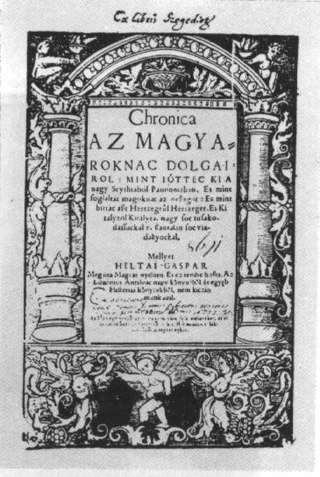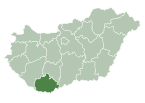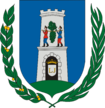Unitarianism is a nontrinitarian branch of Christianity. Unitarian Christians affirm the unitary nature of God as the singular and unique creator of the universe, believe that Jesus Christ was inspired by God in his moral teachings and that he is the savior of humankind, but he is not equal to God himself. Accordingly, Unitarians reject the Ecumenical Councils and ecumenical creeds, and sit outside traditional, main-stream Christianity.

The Battle of Arcole or Battle of Arcola was fought between French and Austrian forces 25 kilometres (16 mi) southeast of Verona during the War of the First Coalition, a part of the French Revolutionary Wars. The battle saw a bold maneuver by Napoleon Bonaparte's French Army of Italy to outflank the Austrian army led by József Alvinczi and cut off its line of retreat. The French victory proved to be a highly significant event during the third Austrian attempt to lift the siege of Mantua. Alvinczi planned to execute a two-pronged offensive against Bonaparte's army. The Austrian commander ordered Paul Davidovich to advance south along the Adige River valley with one corps while Alvinczi led the main army in an advance from the east. The Austrians hoped to raise the siege of Mantua where Dagobert Sigmund von Wurmser was trapped with a large garrison. If the two Austrian columns linked up and if Wurmser's troops were released, French prospects were grim.

Zagreb County was a historic administrative subdivision (županija) of the Kingdom of Croatia-Slavonia. Croatia-Slavonia was an autonomous kingdom within the Lands of the Crown of Saint Stephen (Transleithania), the Hungarian part of the dual Austro-Hungarian Empire. Its territory is now in northern Croatia. The capital of the county was Zagreb.

The Universalist Church of America (UCA) was originally a Christian Universalist religious denomination in the United States. Known from 1866 as the Universalist General Convention, the name was changed to the Universalist Church of America in 1942. In 1961, it consolidated with the American Unitarian Association to form the Unitarian Universalist Association.

Ferenc Dávid was a Protestant preacher and theologian from Transylvania, the founder of the Unitarian Church of Transylvania, and the leading figure of the Nontrinitarian Christian movements during the Protestant Reformation. He disputed the mainstream Christian doctrine of the Trinity, believing God to be one and indivisible.

Baranya was an administrative county (comitatus) of the Kingdom of Hungary. Its territory is now divided between present-day Baranya County of Hungary and Osijek-Baranja County of Croatia. The capital of the county was Pécs.

Freiherr Joseph Alvinczi von Borberek a.k.a. Baron József Alvinczi de Borberek was a soldier in the Habsburg Army and a field marshal of the Austrian Empire. He is remembered for handing Napoleon his first two defeats, at the battles of Bassano and Caldiero, both in 1796 and just days apart. Napoleon would later remark that Alvinczi was the best general he had fought thus far.

Barcs is a border town in Somogy County, Hungary, and the seat of Barcs District. The Drava River marks the southern boundary of the settlement.

The House of Erdődy de Monyorókerék et Monoszló is the name of an old Hungarian-Croatian noble family with possessions in Hungary and Croatia. Elevated to the Hungarian nobility in 1459, the family was subsequently raised to the rank of Count in 1485. In 1565, the family was then recognised by the Habsburg monarchy, which granted them the title Reichsgraf / Gräfin. The family was raised again in 1566 to the rank of Reichfürst; but the death the following year of the recipient prevented the title from being registered and so it did not become hereditary.

Zala was an administrative county (comitatus) of the Kingdom of Hungary, bordered by the river Drave to the south. The territory of the former county is now divided between Hungary, Croatia and Slovenia. The capital of the county was Zalaegerszeg.

Rev. Joseph Cooke (1775–1811), a Free Christian, was expelled by the Wesleyan Methodists on doctrinal grounds and became the inspiration behind the Methodist Unitarian movement formed under the leadership of another former Wesleyan, Joseph Ashworth.

Berzence is a village in Somogy County, Hungary, where Somogy Slovenes still live. Lankócz, Atak, Vecsernye-puszta, Szenterzsébet, Keresztfai-puszta, Perdócz-major, Garics-puszta, György-major and Vadaskerti-major are all parts of Berzence.
Unitarianism, as a Christian denominational family of churches, was first defined in Poland-Lithuania and Transylvania in the late 16th century. It was then further developed in England and America until the early 19th century, although theological ancestors are to be found as far back as the early days of Christianity. It matured and reached its classical form in the middle 19th century. Later historical development has been diverse in different countries.

Gáspár Heltai was a Protestant writer and printer from Transylvania who produced many books in Hungarian. He was also the father of the sister-in-law of Ferenc Dávid.
Adam Bajalics von Bajaháza, also Adam Bajalić von Bajaházy or Adam Bayalitsch, entered Austrian military service and fought against Prussia, Ottoman Turkey, and France. During the 1796–1797 Italian campaign against Napoleon Bonaparte, he commanded a brigade or a division in several actions.
The Second Battle of Bassano on 6 November 1796, saw a Habsburg army commanded by József Alvinczi fight Napoleon Bonaparte's French Army of Italy. The Austrians repulsed persistent French attacks in a struggle in which both sides suffered heavy losses. The engagement, which happened two months after the more famous Battle of Bassano, marked the first tactical defeat of Bonaparte's career and occurred near Bassano del Grappa in Northern Italy during the French Revolutionary Wars. The action was part of the third relief of the siege of Mantua during the War of the First Coalition.
György Enyedi, in Latin Georgius Eniedinus was a Hungarian Unitarian bishop, moderator of the John Sigismund Unitarian Academy in Kolozsvár and writer known as the "Unitarian Plato".

Jenkin Lloyd Jones was a Unitarian minister in the United States, and also the uncle of Frank Lloyd Wright. He founded All Souls Unitarian Church in Chicago, Illinois, as well as its community outreach organization, the Abraham Lincoln Centre. A radical modernist, he joined the "Unity Men" and stressed a creedless "ethical basis" as the common element for churches. He tried to move Unitarianism away from a Christian focus and became a prominent pacifist at the time of World War I. He was a founder and long-time editor of Unity, a liberal religious weekly magazine.

Mill Hill Chapel is a Unitarian church in Leeds, West Yorkshire, England. It is a member of the General Assembly of Unitarian and Free Christian Churches, the umbrella organisation for British Unitarians. The building, which stands in the centre of the city on City Square, was granted Grade II* listed status in 1963.
Humphrey Bromley was a Welsh Unitarian preacher. He may have been the first Unitarian preacher in North Wales. His parents were Humphrey and Jane Bromley, of Tre-brys, Llanrhaeadr-ym-Mochnant, Denbighshire. He worked as a gardener, but he also ran a school in the Pont Maes Mochnant area.




















